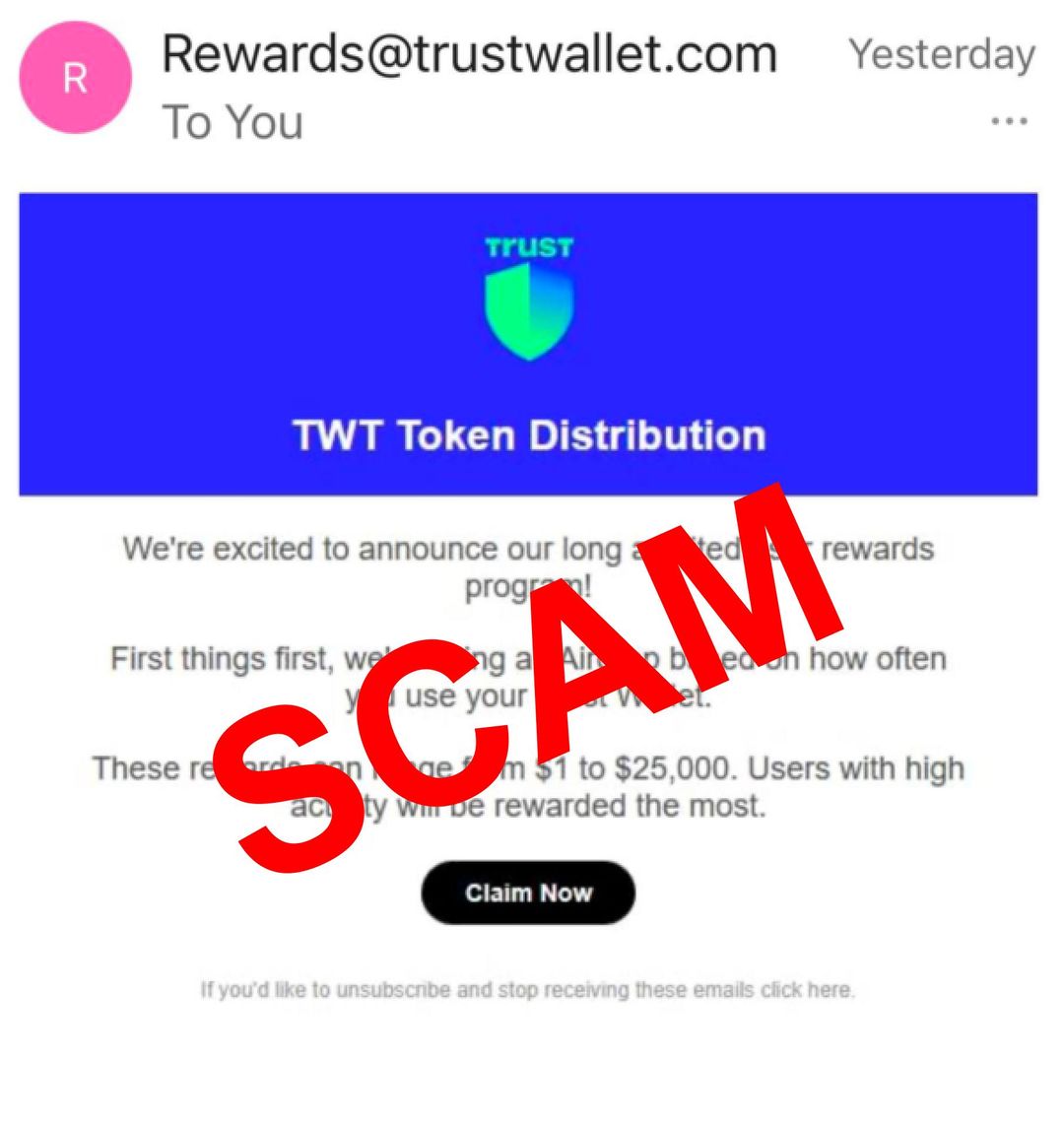Safeguarding Your Assets
How to Protect Yourself from Trust Wallet Scams
As the popularity of cryptocurrency continues to rise, so does the importance of secure digital wallets. Trust Wallet, a decentralized wallet that supports various cryptocurrencies, provides users with a convenient way to store and manage their digital assets. However, with the increasing prevalence of scams targeting cryptocurrency holders, it’s crucial to take proactive measures to protect yourself when using Trust Wallet. In this blog post, we’ll discuss common Trust Wallet scams and provide actionable tips to help you safeguard your assets.

Understanding Trust Wallet Scams
-
Phishing Scams: Fraudsters may create fake websites or send phishing emails posing as Trust Wallet support. They often lure users into providing their private keys or recovery phrases, claiming it’s necessary to resolve an issue with their wallet. Once obtained, these credentials grant scammers access to the victim’s funds.
-
Fake Apps: Scammers may develop counterfeit Trust Wallet apps and distribute them through unofficial app stores or phishing websites. These fake apps often mimic the appearance and functionality of the genuine Trust Wallet but are designed to steal users’ private keys or funds.
-
Social Engineering Attacks: Scammers may impersonate Trust Wallet representatives on social media platforms, forums, or chat groups. They may offer fake support services, promote fraudulent giveaways, or solicit private information from unsuspecting users.
Protecting Yourself
-
Download from Official Sources: Only download Trust Wallet from official app stores such as the Apple App Store or Google Play Store. Avoid downloading apps from third-party websites or app stores, as they may contain malicious software.
- Verify Website URLs: When accessing the Trust Wallet website or support portal, ensure that the URL is correct and starts with “https://” to indicate a secure connection. Be wary of phishing websites with URLs that closely resemble the official site.
- Guard Your Private Keys: Never share your Trust Wallet private keys, recovery phrases, or mnemonic seed phrases with anyone. Trust Wallet support will never ask for this information, as it compromises the security of your wallet.
- Enable Two-Factor Authentication (2FA): Strengthen the security of your Trust Wallet account by enabling two-factor authentication. This adds an extra layer of protection and helps prevent unauthorized access to your funds.
-
Stay Informed: Stay updated on the latest security threats and scams targeting cryptocurrency users. Follow Trust Wallet’s official social media channels and blog for announcements, security tips, and updates.




